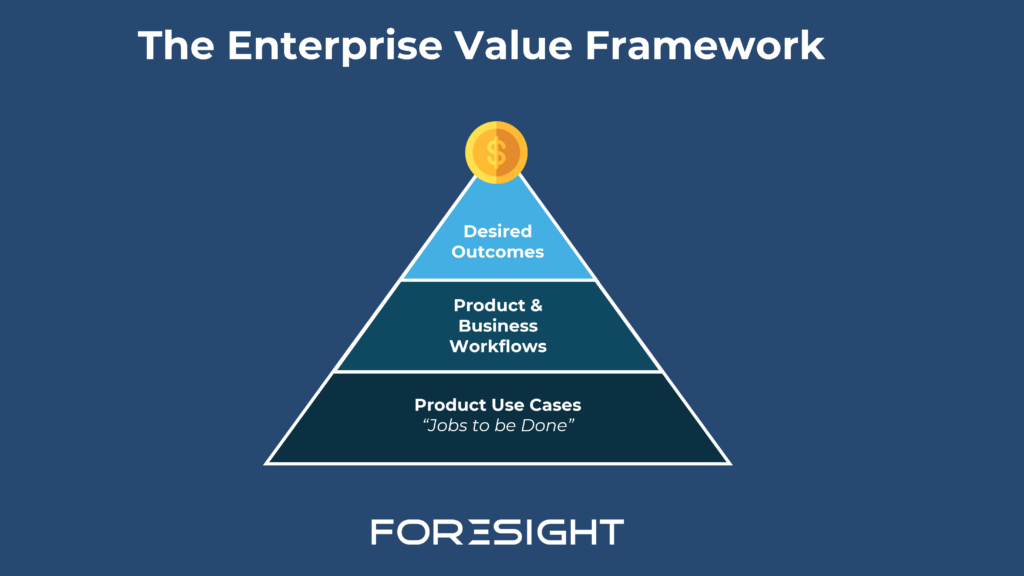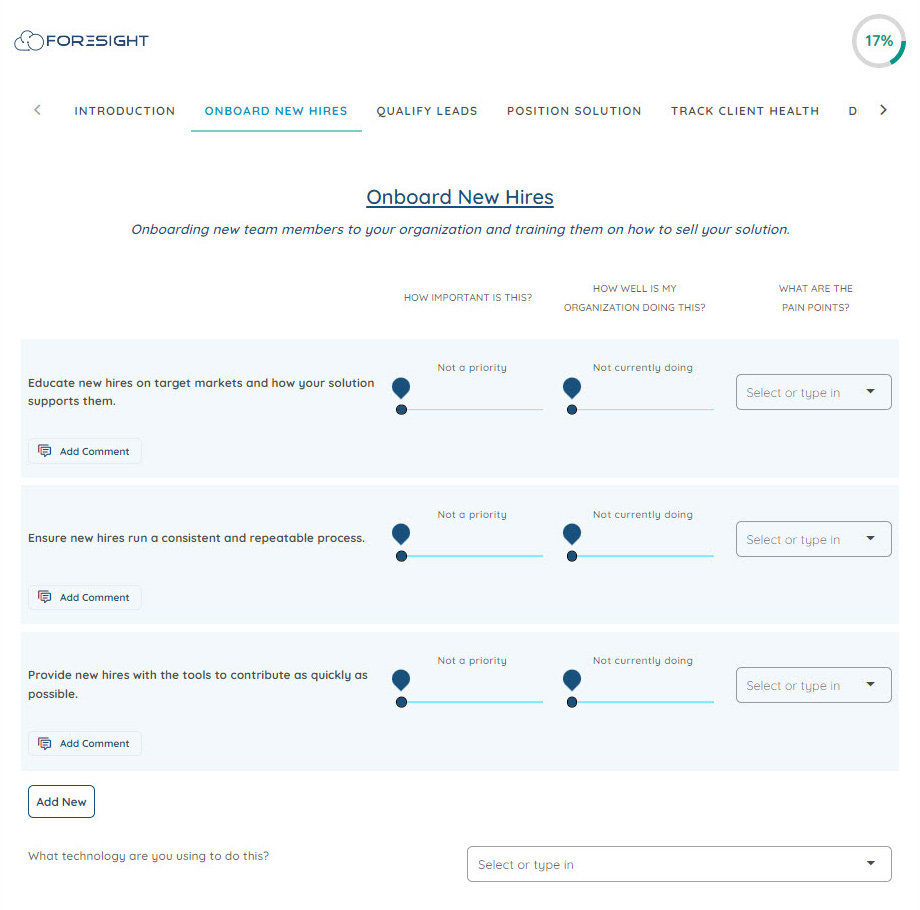By Nigel Hammond, Co-Founder, Foresight
Why Value Measurement is Critical
In B2B SaaS, one of the most consistent challenges we see companies struggle with is the gap between what post-sales teams are doing and the results they’re driving. “My team is always busy but I don’t really see what results they are producing” was how one VP of Account Management at a Series B FinTech put it.
While sales teams benefit from well-defined processes and mature frameworks, the post-sales space has historically been underdeveloped in these areas. Last year, we developed the Enterprise Value Framework (EVF) to help leaders address this issue with a proven, structured, and scalable approach to measure and deliver customer value more effectively.
Why Measuring Customer Value Matters More Than Ever
In post-sales, the ability to retain customers and maximize their lifetime value is critical. Yet, there’s a glaring lack of frameworks and tools for tracking customer value in the way we see with sales. Sales teams have frameworks like the MEDDPICC, Challenger, or Sandler methodologies; on the post-sales side, too many teams are left to reinvent the wheel.
One Senior Director of Customer Experience at an HRTech company shared her team’s struggle with operationalizing customer value. “We built a customer journey model, but we haven’t structured it properly to track real value,” she explained. For years, businesses like hers have operated in a high-growth environment where customer success teams are working hard but often without clear direction on what to measure or how to improve customer outcomes.
This is a major issue. At Foresight, we’ve seen that companies who architect their customer journey around actively measuring customer value can reduce churn significantly, create more upsell opportunities, and operate far more efficiently. But this requires more than just tracking usage or conducting quarterly business reviews (QBRs); it’s about ensuring that every post-sales touchpoint is focused on delivering tangible value to the customer.
Building a Framework for Post-Sales Success
The EVF is a structured, repeatable framework for tracking and delivering customer value. At its core, the framework is built around three pillars:
- Defining Customer Value: Every organization has a slightly different definition of what value looks like for their customers. In the EVF, we start by helping teams clearly map out the workflows, processes, and outcomes that lead to value. This gives post-sales teams a roadmap to follow, enabling them to align their efforts with what matters most to their customers.
- Measuring Value Across the Journey: Once value is defined, the next challenge is embedding value measurement into every customer interaction. One of the most powerful tools we use is the Value Review Cycle, which replaces traditional QBRs with more focused, value-oriented conversations. This allows us to assess whether customers are achieving their desired outcomes regularly, providing the opportunity to course-correct when necessary.
- Optimizing Actions Based on Value Insights: With data in hand, the final step is using these insights to drive better decisions. For example, if a customer isn’t realizing the expected value at a particular stage in their journey, post-sales teams can intervene early to address issues, rather than waiting until it’s too late. Furthermore, aggregating these insights across the customer base unlocks insights to drive Marketing, Product, and Sales efforts.
Turning Post-Sales Teams into Value-Driven Engines
The real breakthrough in applying the EVF comes when post-sales teams shift their focus from managing relationships to actively measuring and delivering value. As one Director of Account Management at a publicly traded FinTech described, the framework has helped to “operationalize customer value by aligning the customer journey to growth opportunities”. Her team has seen a positive impact by ensuring that value delivery is at the center of every customer interaction.
Similarly, a Senior Director of Customer Success at a Series C Cybersecurity company explained how his team has moved beyond the traditional role of customer success—managing renewals and upsells—and has started to focus heavily on understanding why customers buy and whether they’re achieving their goals. By connecting post-sales efforts directly to customer value, his team has been able to drive better business outcomes and become more strategic partners to their customers.
Creating Alignment Across the Organization
One of the biggest benefits of implementing the EVF is its ability to bring different teams together around a common goal: delivering customer value. Too often, sales, product, marketing, and post-sales teams operate in silos, each with its own priorities and metrics. But when customer value is clearly defined and measured, it can serve as a common language that aligns the entire organization.
For example, when product teams understand what value looks like from the customer’s perspective, they can prioritize features and improvements that will have the greatest impact. Similarly, when marketing knows what outcomes matter most to customers, they can tailor messaging that resonates more deeply with prospects and clients alike.
At Foresight, we’ve seen organizations that implement the EVF reduce their reliance on vanity metrics like Net Promoter Score (NPS) and instead focus on more actionable insights. As one VP of Customer Success at a MarTech company said, “NPS doesn’t always capture the full picture of customer satisfaction or value. I can’t really do anything with it.”. By integrating value measurement directly into customer interactions, teams can move beyond surface-level metrics and start making decisions based on real, impactful data.
The Path Forward for Post-Sales Teams
Ultimately, the goal of the EVF is to provide post-sales leaders with the tools and methodologies they need to deliver greater value to their customers. Whether it’s reducing churn, driving upsells, or creating more efficiency within the team, the key is to measure what matters most: customer value.
Post-sales is hard but rewarding work. Our EVF certification program was designed to help give post-sales leaders the tools to drive better customer outcomes by aligning their efforts around the North Star of customer value. When implemented, we have consistently seen companies drive better tangible outcomes (NRR/GRR/Efficiency), remove some of the difficulties of the role, and create more of the rewarding moments where a customer’s desired outcomes are realized.


